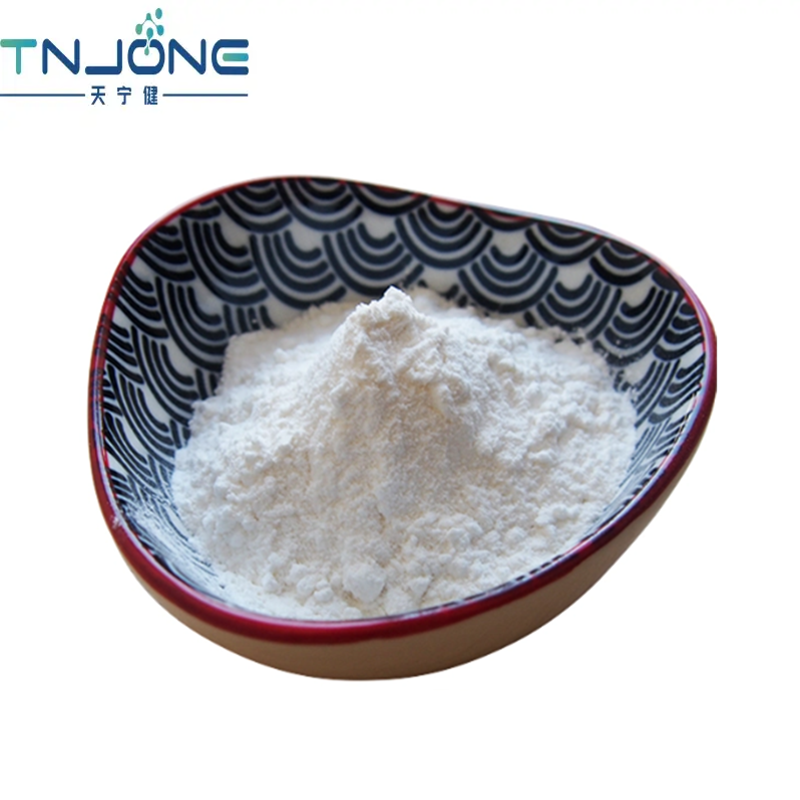-
Categories
-
Pharmaceutical Intermediates
-
Active Pharmaceutical Ingredients
-
Food Additives
- Industrial Coatings
- Agrochemicals
- Dyes and Pigments
- Surfactant
- Flavors and Fragrances
- Chemical Reagents
- Catalyst and Auxiliary
- Natural Products
- Inorganic Chemistry
-
Organic Chemistry
-
Biochemical Engineering
- Analytical Chemistry
-
Cosmetic Ingredient
- Water Treatment Chemical
-
Pharmaceutical Intermediates
Promotion
ECHEMI Mall
Wholesale
Weekly Price
Exhibition
News
-
Trade Service
Food Partner Network News Previously, Food Partner Network introduced the regulatory system of irradiated food inmainstream countries and Southeast Asian countries.
This issue will continue to introduce Thailand's irradiated food regulatory system.
This issue mainly introduces the supervision, legal requirements and labeling requirements ofirradiated food in Thailandfor the reference of related enterprises.
This issue will continue to introduce Thailand's irradiated food regulatory system.
This issue mainly introduces the supervision, legal requirements and labeling requirements ofirradiated food in Thailandfor the reference of related enterprises.
1.
Thailand's regulatory agency for irradiated food
Thailand's regulatory agency for irradiated food
The Thai Food and Drug Administration (hereinafter referred to as the bureau) under the Ministry of Public Health of Thailand is fully responsible for the supervision of irradiated food
.
The bureau formulates deliberation items for food irradiation sites and scoring and assessment standards for food irradiation site reviews, and implements the review of irradiated food sites
.
The review items include whether to obtain the approval of the Thai government agency in terms of safety, such as: holding an irradiation source license (issued by the Thai Atomic Energy Peace Office) and holding a factory establishment license (issued by the Thai Ministry of Industry)
.
The bureau focuses on the assessment of irradiation operation and control.
The actual total score of each assessment item is not less than 80% and no major defects are found, which can be regarded as qualified
.
.
The bureau formulates deliberation items for food irradiation sites and scoring and assessment standards for food irradiation site reviews, and implements the review of irradiated food sites
.
The review items include whether to obtain the approval of the Thai government agency in terms of safety, such as: holding an irradiation source license (issued by the Thai Atomic Energy Peace Office) and holding a factory establishment license (issued by the Thai Ministry of Industry)
.
The bureau focuses on the assessment of irradiation operation and control.
The actual total score of each assessment item is not less than 80% and no major defects are found, which can be regarded as qualified
.
For imported irradiated food, the bureau requires irradiated food importers to provide a certificate that allows the import of irradiated food, and the storage standard of irradiated equipment and irradiated food shall not be lower than the standards stipulated by Thai laws and regulations or other international equivalent standards.
For example: Codex: Recommended International Code of Practice for Radiation Processing of Food (CAC/RCP 19-1979, Rev.
2-2003)
.
For example: Codex: Recommended International Code of Practice for Radiation Processing of Food (CAC/RCP 19-1979, Rev.
2-2003)
.
2.
Regulations and Regulations on Irradiated Food in Thailand
Regulations and Regulations on Irradiated Food in Thailand
The Thai Ministry of Public Health Announcement No.
325 "Irradiated Food" implemented on October 18, 2010 is Thailand's current effective regulation of irradiated food (hereinafter referred to as "Irradiated Food")
.
325 "Irradiated Food" implemented on October 18, 2010 is Thailand's current effective regulation of irradiated food (hereinafter referred to as "Irradiated Food")
.
"Irradiated Food" stipulates that the type of radiation used must come from the original radiation source: ①from gamma radiation containing Cobalt-60 (60Co) or cesium-137 (137Cs) irradiator, or ②from energy level lower than or equal to 500 The X-rays of the X-ray generator of ten million electron volts, or ③ the electron radiation from the electron particle accelerator operating at an energy level lower than or equal to 10 million electron volts
.
.
"Irradiated Food" requires that the absorbed dose of irradiated food should not exceed 10 kGy to ensure food safety and protect consumers
.
If the absorbed dose exceeds 10 kGy, it must be approved by the Thai Food and Drug Administration
.
According to different irradiation purposes, the maximum absorbed dose requirements are specified, as shown in Table 1
.
.
If the absorbed dose exceeds 10 kGy, it must be approved by the Thai Food and Drug Administration
.
According to different irradiation purposes, the maximum absorbed dose requirements are specified, as shown in Table 1
.
"Irradiated Food" requires that irradiated food must not be irradiated again, except for foods with low moisture content and insect pollution control, such as cereals, beans, dehydrated foods and other similar foods
.
.
Table 1 Maximum absorbed dose of irradiated food
| Serial number | Irradiation purpose | Maximum absorbed dose ( kGy ) |
| 1 | To prevent roots and tubers from germinating during storage | 1 |
| 2 | To slow down maturity | 2 |
| 3 | To control/kill insects | 2 |
| 4 | To reduce the number of parasites | 4 |
| 5 | In order to extend the shelf life | 7 |
| 6 | To reduce the number of microorganisms and pathogens | 10 |
Third, Thailand's irradiated food labeling regulations
"Irradiated Food" stipulates that the mandatory labeling content of irradiated food includes:
①The name and address of the head office of the food production enterprise and food irradiation enterprise must be identified;
②Identify "irradiated" or similar meaning;
③The purpose of irradiation is "for ---" (the space left to indicate the purpose of irradiation);
④The date, month and year of irradiation;
⑤Signs of irradiated food (see Figure 1)
.
.
⑥For foods that have not been irradiated but contain irradiated ingredients, the names of irradiated ingredients should be marked with the same meaning as "irradiation---" or "---irradiated" (the space left to indicate the irradiated ingredients) Information
.
.
Figure 1 Thailand irradiated food mark
Four, summary
Irradiated food is a kind of food that needs to strictly control the production process and provide consumers with information
.
At present, Thailand clearly stipulates the requirements of food irradiation source, absorbed dose of irradiated food and irradiated food not to be irradiated again
.
Thailand's standards for assessing food production by irradiation are similar to international standards.
When the irradiated food passes the "irradiated food" quality standard, the manufacturer must mark the complete irradiation information on the food label
.
Therefore, before exporting irradiated food to Thailand, Chinese food export companies should first understand the regulations and import access requirements of Thailand's regulatory irradiated food laws and regulations, and take comprehensive consideration of the products and the actual conditions in Thailand to ensure that the food (product) is exported in compliance.
Thailand
.
Food Partners Network will continue to share content related to Thai food regulation, with a view to helping companies export food to Thailand
.
This article is an original article by the Food Safety Compliance Division of FoodPartner.
com, please contact us for reprinting .
The Food Safety Compliance Division provides domestic and foreign food standards and regulations management and consulting, food safety information monitoring and analysis and early warning, product registration and filing services, label review and compliance consulting, conference training services, etc.
, for detailed inquiries: 0535-2129301, email : Vip@foodmate.
net .
.
At present, Thailand clearly stipulates the requirements of food irradiation source, absorbed dose of irradiated food and irradiated food not to be irradiated again
.
Thailand's standards for assessing food production by irradiation are similar to international standards.
When the irradiated food passes the "irradiated food" quality standard, the manufacturer must mark the complete irradiation information on the food label
.
Therefore, before exporting irradiated food to Thailand, Chinese food export companies should first understand the regulations and import access requirements of Thailand's regulatory irradiated food laws and regulations, and take comprehensive consideration of the products and the actual conditions in Thailand to ensure that the food (product) is exported in compliance.
Thailand
.
Food Partners Network will continue to share content related to Thai food regulation, with a view to helping companies export food to Thailand
.
This article is an original article by the Food Safety Compliance Division of FoodPartner.
com, please contact us for reprinting .
The Food Safety Compliance Division provides domestic and foreign food standards and regulations management and consulting, food safety information monitoring and analysis and early warning, product registration and filing services, label review and compliance consulting, conference training services, etc.
, for detailed inquiries: 0535-2129301, email : Vip@foodmate.
net .







